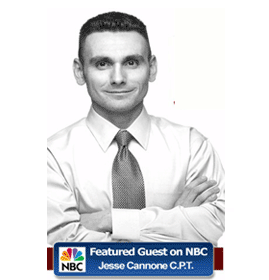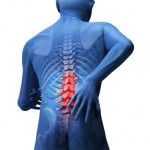Common Questions
Answers to some common questions can educate us in preventing back pain. Age, history of trauma, and inactivity are associated with spinal pain, which is the second most common disease after the common cold. If the pain is associated with fever, weight loss, night sweats, or changes in bladder control or bowel movements, then immediate medical attention is advisable. It may be necessary to keep to minimal activity and hydrate properly to eliminate the onset of pain at night due to the day’s work. RICE is a useful method. Through physical therapy, 90% of back soreness can be relieved. Gentle exercise like walking and returning to normal activities can be effective to prevent back ache.
In this informative patient seminar, Dr. A. Nick Shamie of Si-Bone.com discusses sacroiliac joint disorders and how they can mimic sciatica-like pain. He also looks at treatment options.
Common Questions
Which back ache treatment is best for you? More answers to common questions about pain and treatments in this article.
We lift kids in and out of car seats. We wrestle 50-pound bags of home-improvement materials and never give it a second thought. Then one day, we wake up in pain. Perhaps it’s just mild discomfort, perhaps it hurts so much we can barely move. Suddenly, “the back,” and its care and maintenance are at the top of our list.
To engage the topic of back troubles, how to prevent and understand them, we invited Dr. Alexander Francini of Casa ColinaCenters for Rehabilitation in Pomona to bring us up to speed. As always, any individual medical questions should be addressed by the appropriately licensed medical caregiver.
Question: Let’s start with the basics. Back pain seems to be a common complaint in middle age, is it generally the result of being out of shape, getting older or just doing something wrong, like lifting something heavy improperly?
Answer: Spinal pain is common. It is the second most common reason for visiting the doctor’s office right behind the common cold. The reasons are also typical with age, a history of trauma, and a current lack of activity being strongly associated with new onset of pain. Although it is normal, it is important to realize that it oftentimes gets better.
Q: Is it possible to know whether back pain is the result of something really serious as opposed to muscle strain? We’ve heard of horror stories of deteriorating joints and blown discs, how common are they?
A: It is important to stay in touch with your body. If you did something that led directly to pain it is probably just a sprain. When pain comes on and is associated with fever, night sweats, weight loss, or changes in bowel or bladder control then you should seek out medical attention promptly. However, common things are ordinary in medicine and 90 percent of all spinal pain will get better.
Q: On occasion, we’ve gone to sleep after a vigorous day (doing something like bending over and pulling weeds in the garden) only to wake up the next morning barely able to move. Are there preventive strategies to ease the onset of overnight problems?
A: The first strategy is to stay fit so that moderate activity is not a challenge to your body. That being said, once you have over done it, you should consider a warm down from the activity with some walking and a gentle stretch. Be certain to hydrate well and consider icing sore areas for 20 minutes every two hours. Over the counter ibuprofen or naprosyn would be good to cut down inflammation.
Q: When should I see a doctor or other health professional? If I choose to wait a few days to see how I feel, is the RICE strategy – Rest,
Ice, Compression, Elevation – a good first-aid approach? Do you have any additional or different recommendations?
A: RICE is a very good strategy for any muscle-related injury. You should give this a chance to work for 10 to 14 days. An anti-inflammatory can also be used. If your pain is too severe certainly see your doctor promptly. If after two weeks the pain has not improved, if you have muscle weakness or numbness, be sure to schedule an appointment for evaluation.
Q: Can back problems be “cured,” either through medication, surgery or by a chiropractor? Once I injure my back, will I always be prone to injury?
A: Certainly, 90 percent of spinal injuries will improve spontaneously. You may need physical therapy to get you over the hump with muscle injuries. Should you need a surgical treatment, rest assured that overwhelmingly the outcomes are excellent with return to previous levels of activity common. If you dedicate yourself to fitness, you can prevent ongoing injuries.
Q: Can I exercise my way out of back pain or should I wait until I am relatively pain free before becoming active?
A: I recommend early return to activity. It should be measured and progressive with simple walking being the first step. Once your movement is better I like to see gentle strengthening to stabilize the core. At no time should you feel the pain worsen. If pain worsens then back off or be re-evaluated by your physician.
If you know the right answers to some common questions, you will be potentially strong enough to fight back pain. The core of the answer lies in keeping to normal activity through gentle exercises and daily work. Keep yourself hydrated and pay attention to your posture while sitting for long hours, and maintain body movements while bending or lifting heavy objects. Remember RICE, but you will only need a bowl for the ice!
What you should know about treating back pain. By Greg Collins – CVS pharmacist.
How to treat lower back pain? Dr.Jack Kohl of Renoldsburg Chiropractic Center answers your questions about back pain problems.
You might also like:
Tags: common questions, pain relief















